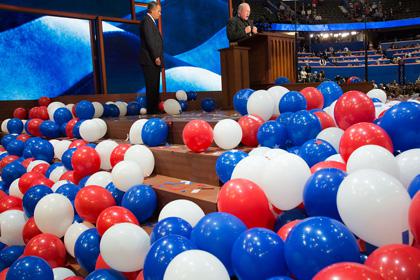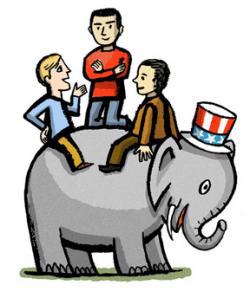So here we are, at long last, at Mitt’s big night. Naturally it means that 20,000 of us in a hockey arena—and everyone else at home—get to participate in a Turing Test.
This evening’s roster isn’t the first evidence we’ve been shown of the Romney campaign’s desperation to show their figurehead to be human. In Ann Romney’s hands Tuesday, that took the form of an attempt to reveal imperfections—the theme that her life together with Mitt was not a “storybook” but “real,” as though we were so distracted by the metaphor that we forgot the Romneys do in fact walk among us. Yet Ann had trouble sticking with the theme of imperfection, by the end declaring of her husband: “This man will not fail.”
Tonight’s testimonials offer a return to the storybook: Mitt the humanitarian, Mitt the entrepreneur. The only thing remarkable about the fact that Romney’s convention is devoted to mythologizing him is that so much of it is new to our ears. And while the tales of Bain’s successes remain largely fresh, it is of course the accounts of his relationships with his fellow Mormons that are perhaps most jarring to our understanding of Romney.

Richard Kalvar / Magnum Photos for Slate.
I can’t think of the last time we had a major-party nominee whose life was deeply intertwined with the institutions of his religion. Romney is not only an active believer, like Jimmy Carter, but someone who has assumed the most significant leadership positions his faith makes available to a layperson. As stake president, Romney assumed duties of church administration; as bishop, he had responsibility for his flock’s spiritual well-being.
We’ve so far treated Romney’s religion as a binary biographical fact: Is it proper for us to mention it or not? Tonight Romney has officially given us permission to treat his faith as an important part of who he is. So let’s stop talking not about if we’re ready to have a president who is an adherent of an outlying faith. Instead let’s ask the more important question about Romney: What would it mean to have a president whose leadership skills were honed while wielding the power and authority of a church?
